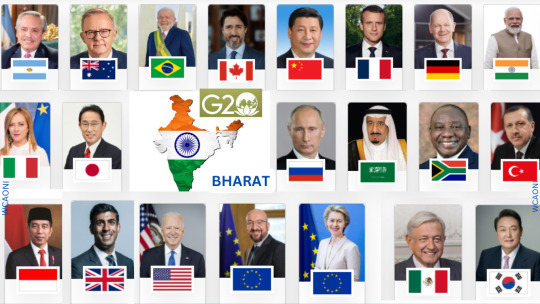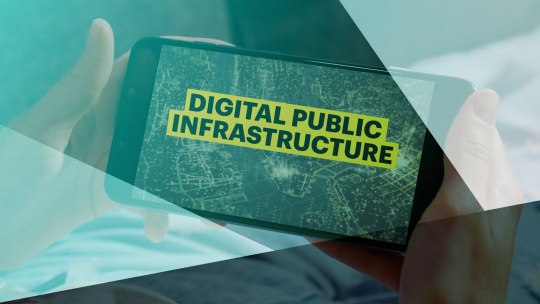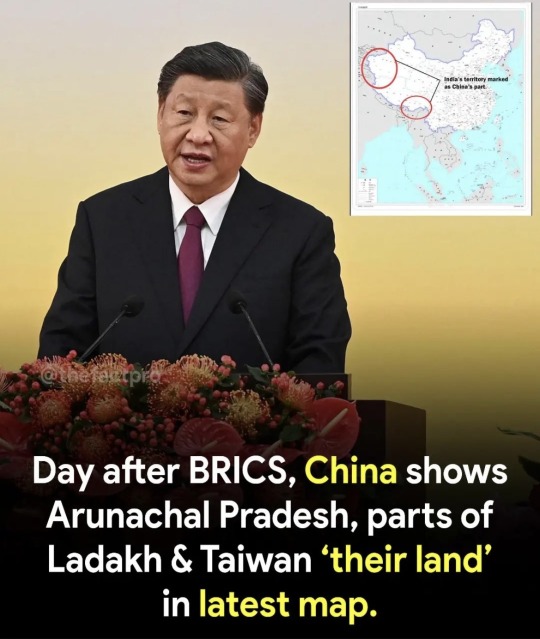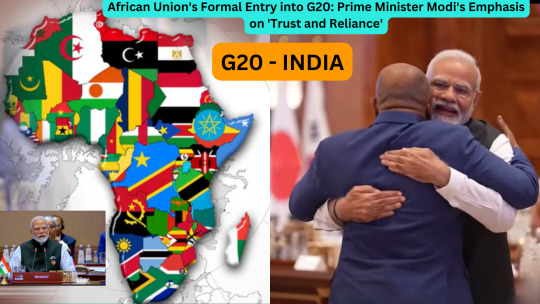#india and g20 presidency
Text
ప్రపంచం మెచ్చిన ప్రధాన మోదీ!
ఘనంగా G20 సమ్మిట్ ఏర్పాట్లు, ప్రపంచదేశాల నుంచి అంతులేని ప్రశంసలు. @narendramodi
@g20org
@unesco
@jayshankar_03@amitshahofficial@bjp4india@hindustantimes
#narendramodi#bjp#bharat#G20#g20summit#india#indiatobharat#bharatia#pradanimodi#politics#joebiden#usa#southkorea#president#governer#trending#fyp#bts#prideflags#piersmorgan#andrewtate#motivation#love poem#Mrs. Shetty & Mr. Polishetty Movie Public review#anushkashetty#telugucinema#naveenpolishetty#moviereview#queencard#trendingreels
4 notes
·
View notes
Text

#nekton india#business#marketing#sales#education#tote bags#bags & purses#bagstyle#manufacturer#manufacturing#success#health & fitness#g20india#g20#g20summit#g20 presidency#headlines today news
5 notes
·
View notes
Text
"Forging Unity: The G20 Presidency's Impact On India's Harmonious Integration Of India And Bharat" - IMPRI Impact And Policy Research Institute
Dr. Aditi Narayani Paswan
Abstract
G20 events have contributed both in infrastructural, informational and institutional development in different parts of the country. They have brought together not only civil society but also self-help groups, small rural initiatives and local action groups hitherto delinked to global dialogue and narratives.
On December 1, 2022, India assumed the presidency of…

View On WordPress
#Bharat#forging#G20#Harmonious#impact#impri#India#Indias#Institute#Integration#policy#Presidencys#research#Unity
0 notes
Text

After India Which country will host the G20 [G21] Summit /2024 ?
#g20#g20 presidency#g20 meeting#gk#news#current affairs today#breaking news#india#g20 countries#g20summit#g20india#headlines today news#summit#bharat#worlds leaders#current affairs pdf#current affairs for upsc#current affairs
0 notes
Text
India's G20 Presidency: A Chance to Shape the Global Agenda
India is currently holding the presidency of the G20, a forum of the world’s 20 largest economies. India’s leadership in the G20 is being held in New Delhi from September 9-10, 2023. India has outlined its priorities for the summit as follows: green development, climate finance, and the LiFE initiative; accelerated, inclusive, and resilient growth; advancing the Sustainable Development Goals…

View On WordPress
0 notes
Text
youtube
G20 Submit India 2023
1 note
·
View note
Text
#india#bharat#president#DraupadiMurmu#g20#MohanBhagwat#RepublicofIndia#RepublicofBharat#G20Summit#rss#youthjagran#youthjagranindia#youthjagrannews
0 notes
Text
Biden ‘disappointed’ that Xi set to miss G20 summit in India - SUCH TV
US President Joe Biden on Sunday expressed disappointment that Chinese leader Xi Jinping would not attend the G20 summit in India this week, as Washington seeks to repair relations with Beijing.
Asked about Xi reportedly not planning to join the gathering in New Delhi, Biden told reporters, “I am disappointed, but I am going to get to see him,” without elaborating.
Bilateral ties between the…

View On WordPress
0 notes
Text
India Leverages Digital Public Infrastructure to Change the Face of Governance

The recent endorsement by the G20 Ministers plus the discourse from EkStep Foundation were further feathers in India’s DPI cap
Rajneesh De, Consulting Editor, APAC News Network
“A single step of a man, a giant leap for mankind.” These were the immortal words of Neil Armstrong after landing on moon (perhaps even more relevant today after the euphoria of Chandrayan 3).
Decades later, another Indian luminary Nandan Nilekani seems to have almost paraphrased these immortal lines. “EkStep for India, a thousand steps for its billions.”
The occasion:
an intellectual confluence of industry leaders, technocrats, and bureaucrats to discuss the possibilities of transforming India by ushering in a Digital Public Infrastructure(DPI) Revolution across the three pillars of the economy – Samaaj (civil society), Sarkar (government), and Bazaar (business).
The proponents:
EkStep Foundation started by Nandan, Rohini Nilekani and Shankar Maruwada in 2015.
As per a recent IMF paper, between 2013 and March 2021, the Indian government saved up to 1.1% of GDP expenditure thanks to the advanced DPI.
The Indian ecosystem has also witnessed a tremendous increase in the use of Digital Infrastructure, with a 200% increase in rural internet subscriptions against 158% in urban India between 2015 and 2021, as per the data from Press Information Bureau (PIB).
The focus areas included PeoplePlus Lifelong Learning, PeoplePlus AI for Societal Change, and PeoplePlus Open Networks. The Lifelong Learning focused on harnessing the power of Digital Public Infrastructure (DPIs) to enrich the learning experiences in FLN, vocational, and skilling sectors.
The PeoplePlus AI for Societal Change deliberated on how AI can bring about societal changes by providing language as a bridge, turbocharging human capability, amplifying visibility and decision-making, and creating new possibilities and professions.
The PeoplePlus Networks highlighted the importance of open networks for open opportunities in education & skilling to enable discoverability, accessibility, and inclusivity.
“Digital Public Infrastructure is a significant step forward for Bharat’s commitment to self-sustainability and technology leadership,” emphasized Nandan Nilekani.
India, through India Stack was the first country to develop all three foundational DPIs: digital identity (Aadhar), real-time fast payment (UPI) and a platform to safely share personal data without compromising privacy (Account Aggregator built on the Data Empowerment Protection Architecture or DEPA). Each DPI layer fills a clear need and generates considerable value across sectors.
Incidentally DPI has been collectively adopted by the G20 countries as a set of shared digital systems. This set obviously comes with a number of riders including security, interoperablity, on open standards and accessible for all, with governance and community as core components.
The G20 Digital Economy Ministers even arrived at a consensus to shape digital public infrastructure (DPI) of the future, as an accelerator of the Sustainable Development Goals (SDGs).
The United Nations Development Program (UNDP) with the World Bank collaborated with the Government of India as its knowledge partner on DPI in the Digital Economy Working Group.
Event the Prime Minister of India, Narendra Modi, reiterated the “unshakable belief of India in innovation, speedy implementation of DPI, modulated by spirit of inclusion – leaving no one behind.”
The G20 India Presidency also proposed the One Future Alliance’ (OFA) with support from UNDP and its knowledge partners. This alliance envisages a confluence of governments, tprivate sector, academic and research institutions, donor agencies, civil society organizations and other relevant stakeholders in the DPI ecosystem.
While theoretical discourses are fine, it is perhaps time to analyze the benefits of the digital public infrastructure for India. Creating a more equitable digital economy, reducing the wealth gap, empowering digital inclusion and enhancing service delivery obviously stand out. Add to these the reducing transaction costs, improving agricultural practices, improved decision making in governance, quick and effective disaster management and emergency response.
Notwithstanding the optimism, there are still bottlenecks around in more extensive DPI adoption. The lack of access to infrastructure, digital divide and affordability are the top three challenges. Language and content barriers, physical and cognitive disabilities, privacy and security concerns as well as geographical disparities too pose as impediments.
A stronger policy and regulatory support, proper and timely investment in digital infrastructure, targeted use cases and services should be some of the action plans to mitigate these challenges. Add to it more sensitivity towards localized content and language diversity.
Box: The G20 DPI Framework comprises three elements:
Technology in the form of interoperable and reusable digital systems and applications (e.g., software codes, protocols, standards) that can be used across different use cases and sectors;
Governance standards that codify human rights and protection of personal data, privacy, and intellectual property, as well as accessible and transparent grievance redressal mechanisms. Governance can also extend to cover institutions and funding;
A community of private sector and civil society actors who collaborate.
Box: Examples of digital infrastructure include:
Internet backbone, broadband.
Mobile telecom and digital communication suites, including applications.
Data centers and networks.
Enterprise portals, platforms, systems, and software.
Cloud services and software.
Operational security, user identity and data encryption.
Also Read More - https://apacnewsnetwork.com/2023/08/india-leverages-digital-public-infrastructure-to-change-the-face-of-governance/
#APAC Exclusive#Digital Economy Ministers#Digital Infrastructure#digital public infrastructure#EkStep Foundation#Face of Governance#G20 countries#G20 Digital Economy Ministers#G20 India Presidency#G20 Ministers plus#Chandrayan 3
0 notes
Text

#china released the 2023 edition of its territorial map as per its imagination, claiming Indian territories such as #arunachalpradesh and parts of #ladakh (Aksai Chin region) as its own. Apart from Indian territories, China also included #taiwan and the contentious 9-dash line in the #southchinasea
Notably, the map was released when India is all set to host the #G20 Summit on 9th September and 10th September. China is one of the G20 countries. Chinese President #xijinping is set to visit Delhi for the G20 Summit.

#surya#surya kulshreshtha#kulshreshtha#technology#india#suryakulshreshtha#android#life#programming#coding#g20 countries#g20summit#g20 nations#g20 presidency#china#global times
1 note
·
View note
Text
G-20 शिखर सम्मेलन में भाग लेने भारत नहीं आएंगे पुतिन : क्रेमलिन
New Delhi: क्रेमलिन ने शुक्रवार को कहा कि रूस के राष्ट्रपति व्लादिमीर पुतिन (Russian President Vladimir Putin) अगले महीने दिल्ली में होने वाले जी20 शिखर सम्मेलन में भाग लेने के लिए भारत नहीं आएंगे।
पुतिन के प्रवक्ता दिमित्री पेसकोव ने मॉस्को में मीडिया से कहा कि रूसी राष्ट्रपति जी20 शिखर सम्मेलन के लिए भारत की यात्रा की योजना नहीं बना रहे हैं।
पेसकोव ने कहा, अब मुख्य जोर यूक्रेन में एक विशेष…

View On WordPress
0 notes
Text
African Union's Formal Entry into G20: Prime Minister Modi's Emphasis on 'Trust and Reliance'

In a significant development that underscores the shifting global dynamics, the African Union has gained formal entry into the G20, a group of major economies that collectively shape the world's economic policies and decisions. This momentous event is a testament to the increasing importance of Africa on the global stage and Prime Minister Modi's unwavering emphasis on 'Trust and Reliance' in international diplomacy.
The African Union's Historic Achievement
Embracing Africa's Economic Potential
The formal inclusion of the African Union into the G20 is a recognition of the continent's economic potential. With a burgeoning population and vast untapped resources, Africa has become a crucial player in the global economy.
Prime Minister Modi's Diplomatic Vision
Prime Minister Modi's diplomatic vision has played a pivotal role in making this inclusion possible. His emphasis on fostering trust and reliance between nations has resonated with African leaders and the international community.
The Significance of the G20
A Forum for Global Economic Cooperation
The G20 serves as a platform for major economies to come together and address critical global economic issues. It encompasses a diverse group of nations, including the United States, China, and India, and now, with the African Union's entry, African nations will have a stronger voice in shaping the global economic landscape.
Promoting Inclusivity
The inclusion of the African Union aligns with the G20's commitment to inclusivity and collaboration. It acknowledges that solutions to global challenges must include perspectives from all regions, especially those with emerging economies.
Trust and Reliance: The Cornerstones of Modi's Diplomacy
Building Bridges through Trust
Prime Minister Modi's diplomacy has consistently emphasized building trust among nations. In the case of Africa, this trust has grown through economic partnerships, development assistance, and mutual cooperation.
Reliance on Shared Goals
Reliance in diplomacy refers to countries depending on each other to achieve common goals. India's reliance on African nations for resources, trade, and collaboration has been reciprocated, further strengthening the diplomatic ties.
The Future of Africa-G20 Relations
Economic Growth
The African Union's entry into the G20 is expected to spur economic growth in the region. Increased collaboration with major economies can lead to investments in infrastructure, technology transfer, and enhanced trade opportunities.
Addressing Global Challenges
Together, the G20 and African Union can work towards addressing pressing global challenges, such as climate change, healthcare, and poverty alleviation. This partnership has the potential to create lasting solutions for a better world.
Conclusion
The African Union's formal entry into the G20 marks a historic moment in international diplomacy. It signifies the recognition of Africa's economic potential and Prime Minister Modi's commitment to fostering trust and reliance among nations. As Africa takes its seat at the table of global economic decision-makers, we can anticipate a future of increased cooperation, economic growth, and collective action to tackle global challenges.
#breaking news#news#current affairs today#inspiration#india#g20summit#g20india#g20 presidency#g20#g20 meeting#headlines today news#g20 summit#gk#G20#g20 countries#g20 nations#news media#world politics#world news#WCAONI
0 notes
Text
G20 Presidency: India's Path To Global Leadership - IMPRI Impact And Policy Research Institute
Harsh V Pant and Paras Ratna
The G20 was conceived in 1999 in the wake of the Asian financial crisis as a platform for finance ministers and central bank governors to deliberate on issues pertaining to global finance and economy. In 2008, it was elevated to include the heads of State against the backdrop of global recession. Today, representing more than 80 per cent of the world’s GDP, 75 per…

View On WordPress
0 notes
Text
0 notes
Text
G20 का इतिहास/G20 में भारत 2023 /Youtuberam/Ram's Blog
जी-20 का इतिहास (History of G-20 )
ग्रुप ऑफ ट्रेटी (G 20) एक दुनिया में आर्थिक सहयोगियों का एक मुख्य मंच हैं।यह संघटन अंतराष्ट्रीय आर्थिक मुद्दों पर पर विश्व में आर्थिक गतिविधियों की रूपरेखा और नियमो का निर्धारण करता हैं और इसे मजबूत करने के लिए कार्य करता हैं।
#indo chinese#g20india#g20 countries#g20 presidency#hello world#the times of india: latest news india#currentaffairsquiz
0 notes